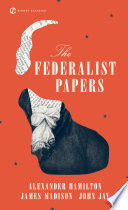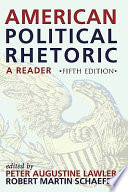 | Roger H. Davidson - Political Science - 2004 - 196 pages
...Alexander Hamilton, quoting Montesquieu, observed in Federalist 78 that "there is no liberty, if the power of judging be not separated from the legislative and executive powers." 1 John Adams wrote that judges should not "be distracted with jarring interests; they should not be... | |
 | Shirley Elson Roessler, Reny Miklos - History - 2003 - 320 pages
...enact tyrannical laws, to execute them in a tyrannical manner. 249 Again, there is no liberty, if the power of judging be not separated from the legislative and executive powers. Were it joined with the legislative, the life and liberty of the subject would be exposed to arbitrary... | |
 | Alexander Hamilton, James Madison, John Jay - History - 2003 - 692 pages
...legislative and executive powers are united in the same person, or body of magistrates," or, "if the power of judging be not separated from the legislative and executive powers," he did not mean that these departments ought to have no partial agency in, or no control over, the... | |
 | Patriot Hall - History - 2004 - 346 pages
...generation that had organized it was extinguished, p. 188 20. For I agree, that "there is no liberty, if the power of judging be not separated from the legislative and executive powers." And it proves, in the last place, that as liberty can have nothing to fear from the judiciary alone, but... | |
 | Edward Keynes - Political Science - 2010 - 261 pages
...and political liberty. l"[T] here is no liberty,'" Hamilton approvingly quoted Montesquieu, "'if the power of judging be not separated from the legislative and executive powers.' "6s The Framers' creation of an independent judiciary represents a significant contribution to eighteenth-century... | |
 | Peter Augustine Lawler, Robert Martin Schaefer - Political Science - 2005 - 444 pages
...as often to attend and participate in its deliberations, though not admitted to a legislative vote. power of judging be not separated from the legislative and executive powers," he did not mean that these departments ought to have no partial agency in, or no control over, the... | |
 | Craig Bradley - Biography & Autobiography - 2006 - 424 pages
...the judiciary was an essential aspect of the proposed new government. "[T]here is no liberty, if the power of judging be not separated from the legislative and executive powers." He then delineated the role of the courts in the proposed system of government: The complete independence... | |
 | Kermit Roosevelt - Political Science - 2006 - 284 pages
...established. In the 78th Federalist Paper, Alexander Hamilton wrote that "there is no liberty, if the power of judging be not separated from the legislative and executive powers." In Federalist 47, James Madison put the point more strongly still: the "accumulation of all powers,... | |
| |